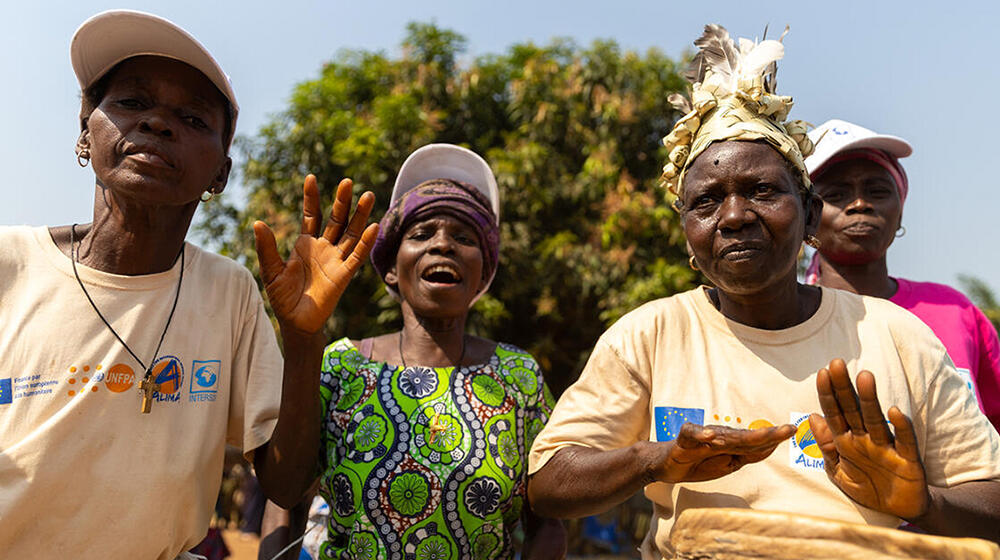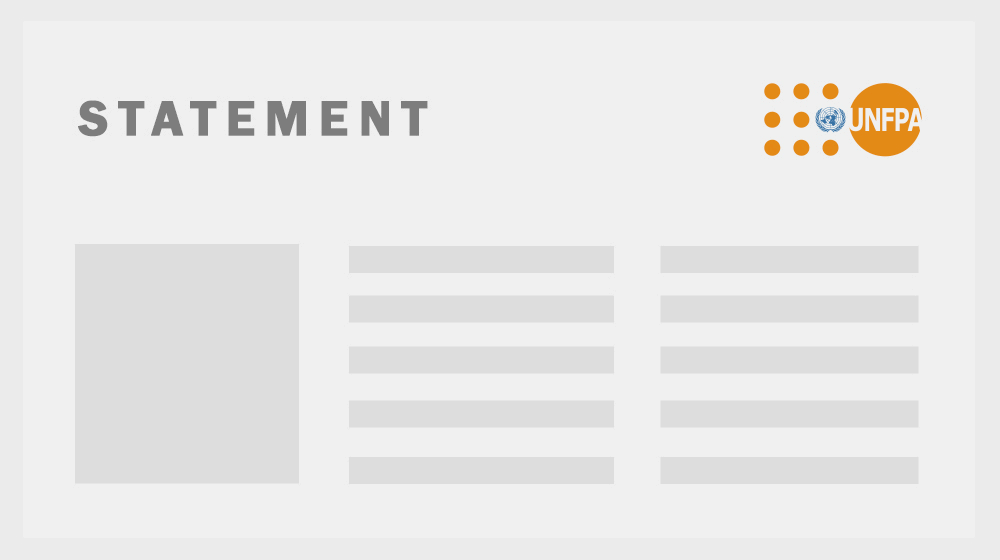
My future, my choices: Empowering young Arab women and girls
Girls across the Arab region are claiming their rights and equipping themselves with skills to navigate the world as young women. See how @UNFPA—the @un sexual and reproductive health agency—is supporting them: https://unf.pa/mfm
My future, my choices: Empowering young Arab women and girls

Sometimes it’s just easier to talk to a robot.
At the Burj Alluqluq Community Centre in East Jerusalem, young people can do just that. The Q-Robot looks like a toy but is actually quite smart, teaching students about digital safety and answering questions about topics such as bullying and social media. The facility has also developed creative apps that are both educational and entertaining to support digital literacy and well-being.
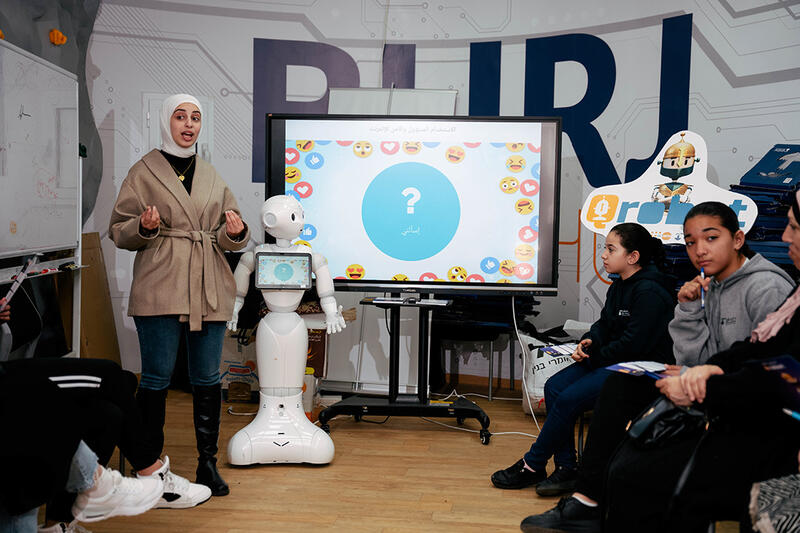
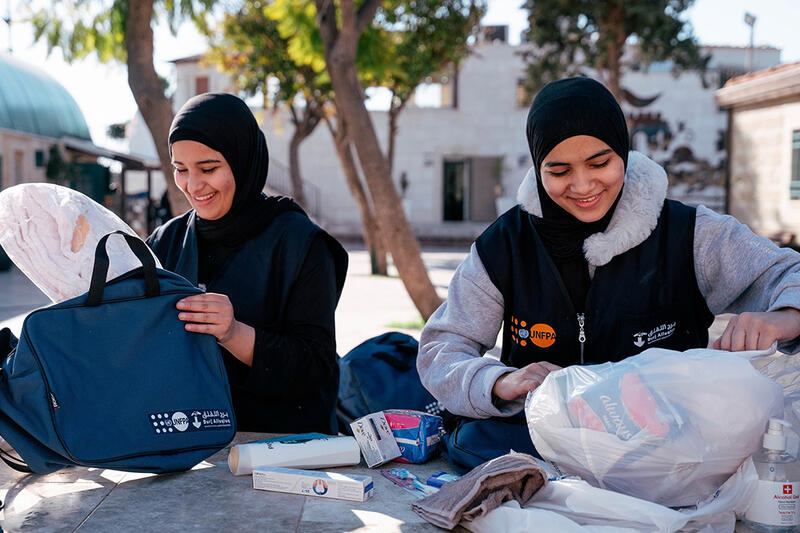
Young people are at the heart of this community centre, which offers a range of recreational and vocational activities to Palestinian youth growing up in the West Bank – where violence has escalated since October 2023, leaving young people in need of increased support.
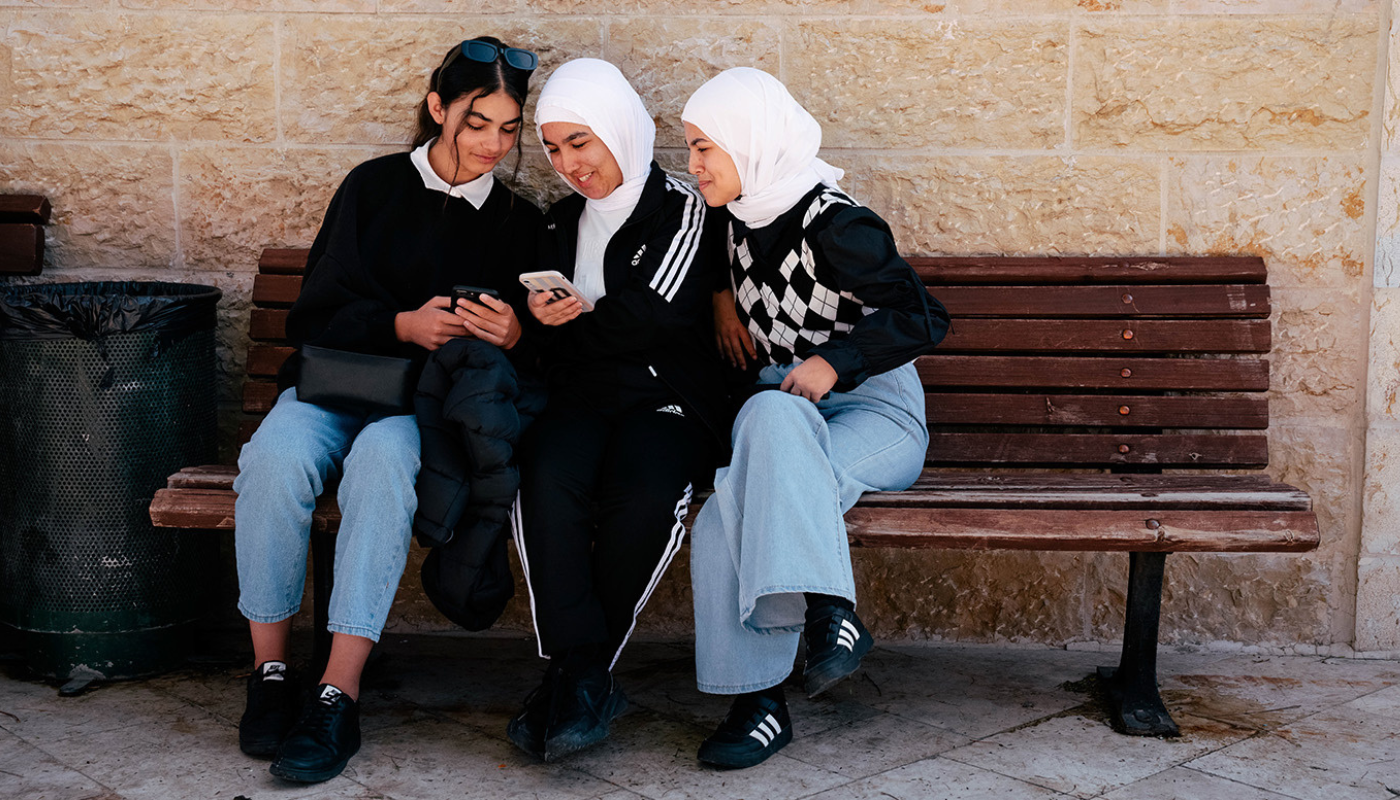
The centre is one of many initiatives that UNFPA supports across Arab communities, with the goal of helping young people learn a range of new skills and fulfill their potential.
Here, an inside look at a few key initiatives – in Jordan, Yemen, Syria, Egypt and Tunisia.
For girls only: Learning self-defence in a Jordan refugee camp
Set up in 2012 for people fleeing war in Syria, the Zaatari refugee camp in Jordan is the only home many adolescents have ever known. School, play and all major milestones happen within the confines of the camp.
Thankfully, girls can expand their horizons at the Adolescent Girls Empowerment Led Centre, which offers activities ranging from a chess club to classes in Zumba, self-defence and art. The centre also offers initiatives to increase digital literacy and innovation. For instance, for International Youth Day this year, a competition for the best digital initiative inspires young people to develop new ideas, including apps, with technical support to bring the ideas to life.
Behind the creative apps, dance moves and works of art, there’s a serious motivation: to ensure that girls know their rights, to better protect them from gender-based violence, and to equip them with skills to navigate their lives as young women.
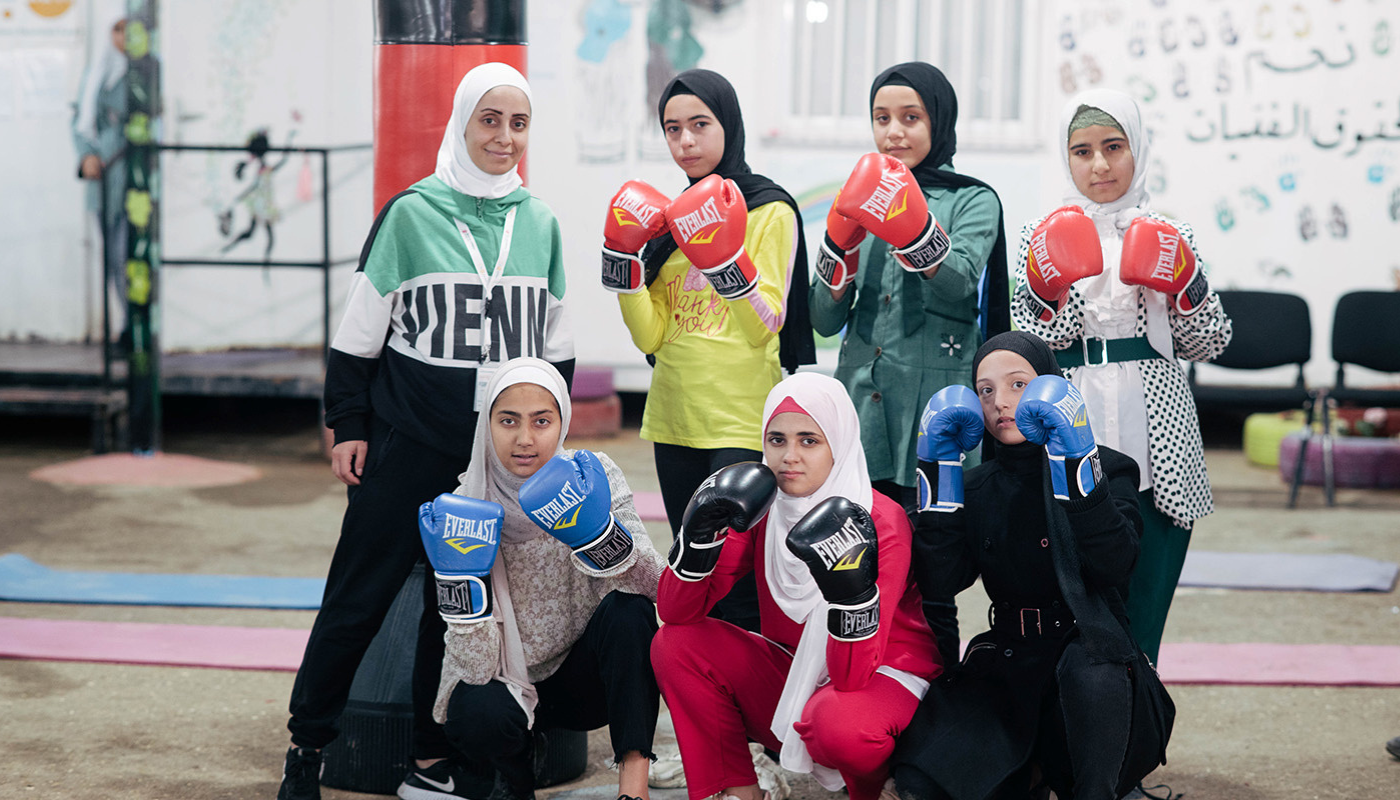
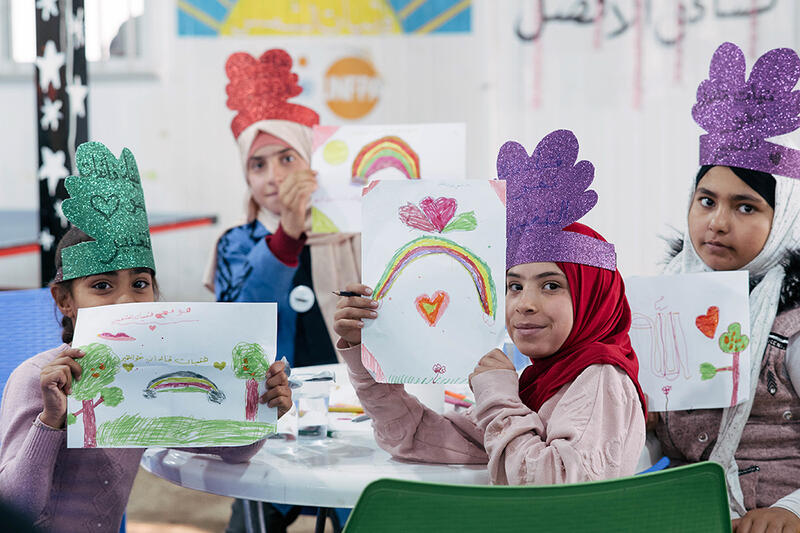
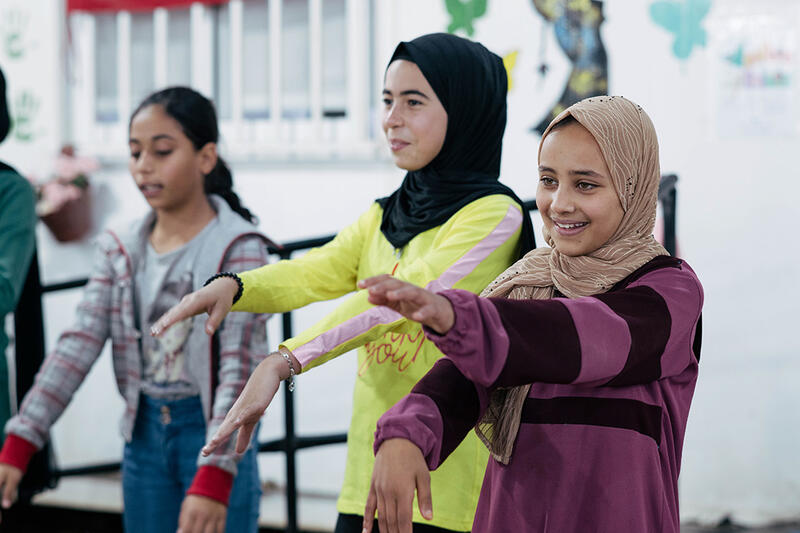
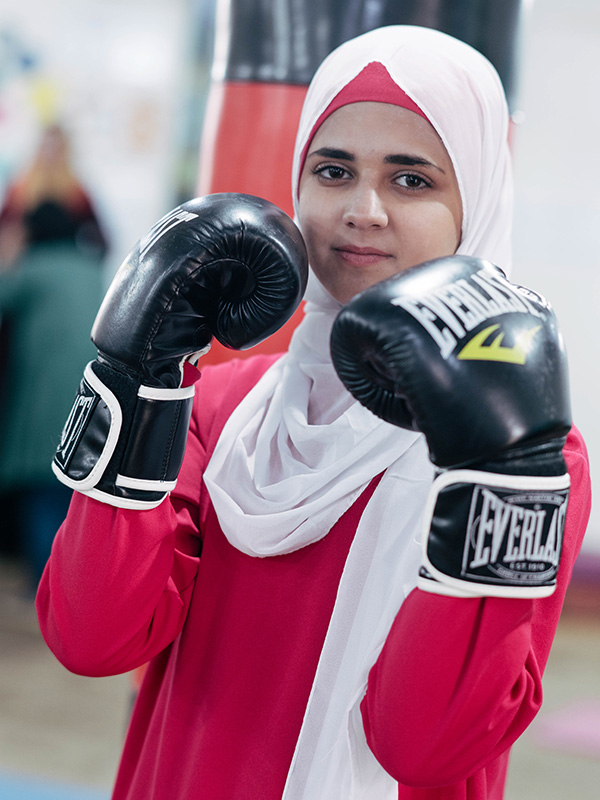
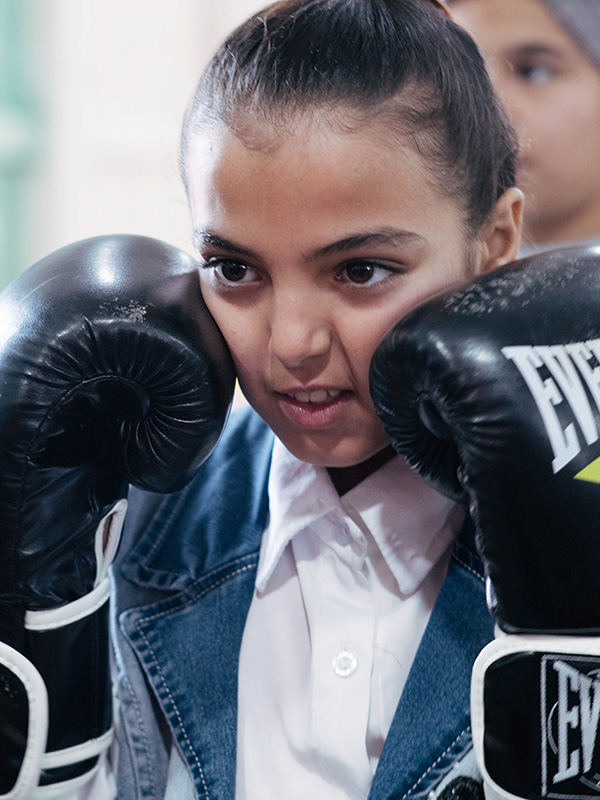
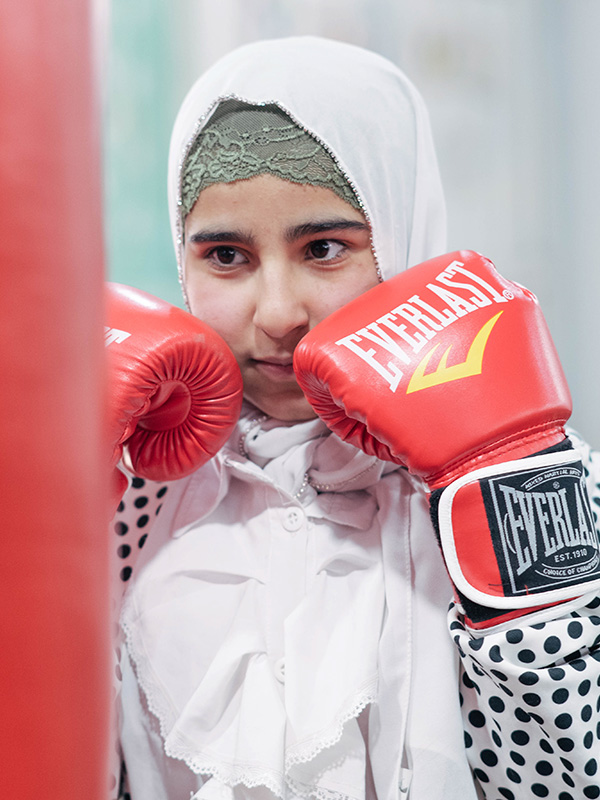
Carving out a new future in Yemen
Yemen has high rates of both youth unemployment and inequality for women in the workplace, with women’s participation continually declining since the 1990s.
That’s why young women are in focus at a UNFPA-supported safe space in the city of Sana'a. The facility strives to help young people reach their potential and see an equitable future in Yemen – one in which women and girls can support themselves and their families and build their careers.
As well as providing a safe space for young women to socialize and receive support, the centre teaches a range of courses aimed at building resilience in the face of humanitarian crises and economic hardship.
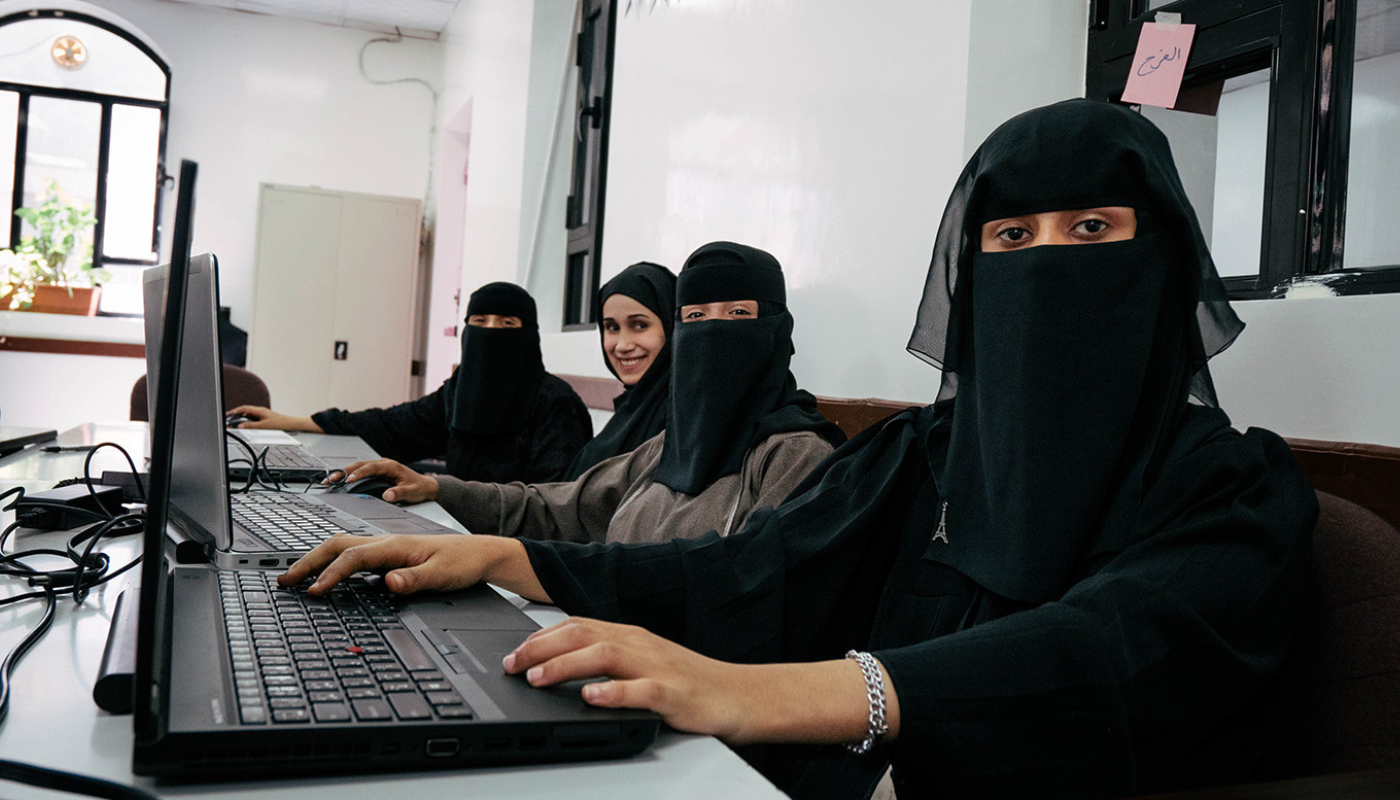
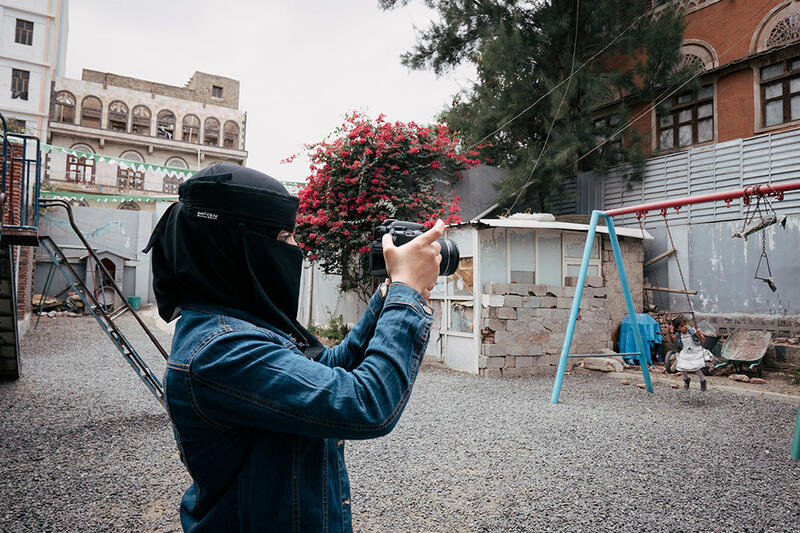
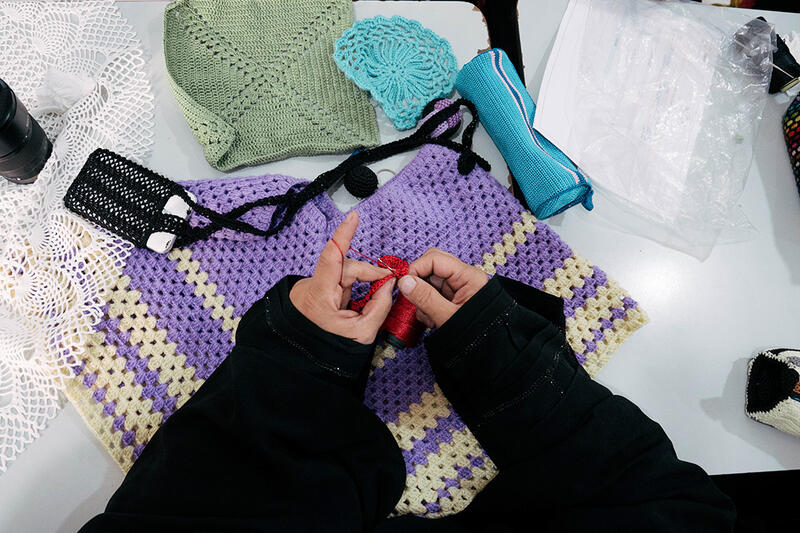
Combating gender-based violence through theatre in Egypt
“When I act, I feel like a butterfly,” says Rabaa Abdel Hamid, team leader of the Nawah Youth Theatre Group in the Egyptian city of Minya.
By enabling young people to act out various scenarios onstage, the UNFPA-supported initiative makes taboo subjects more accessible, such as reproductive health issues and gender-based violence, including female genital mutilation. It also helps young people become agents of change in their communities.
Rabaa admits that when she first joined the group, she questioned the benefit of acting; it wasn’t something she’d had access to while growing up in the countryside, especially as a girl.
“I worked hard to become a trainer in reproductive health,” she says. “At first, I was a very shy person, unable to talk to men and boys, but then I started to overcome the fear. I went from having no knowledge on many topics to a person who can speak to hundreds of people about these issues.”
There are currently 16 community theatre teams across Egypt, and they have reached 75,079 people via their performances since 2017. “I believe that theatre enables information to be shared in a very positive way,” says Rabaa.

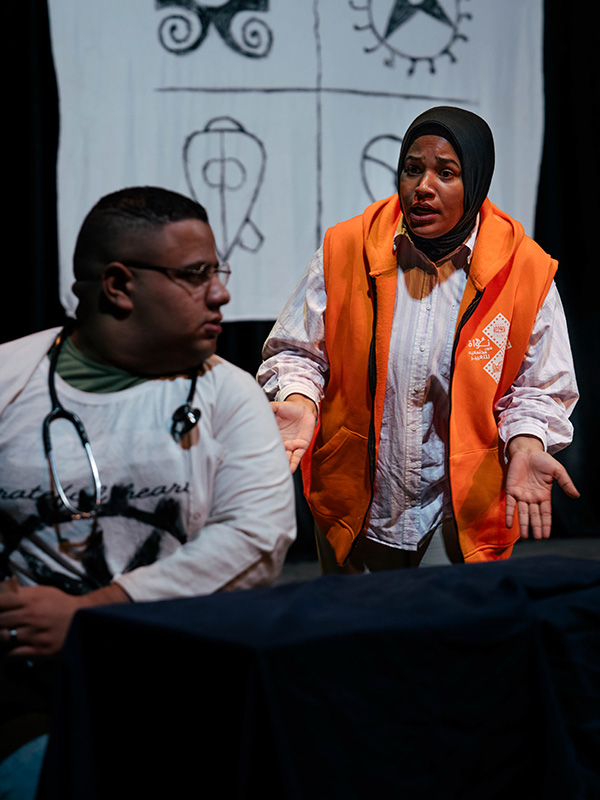
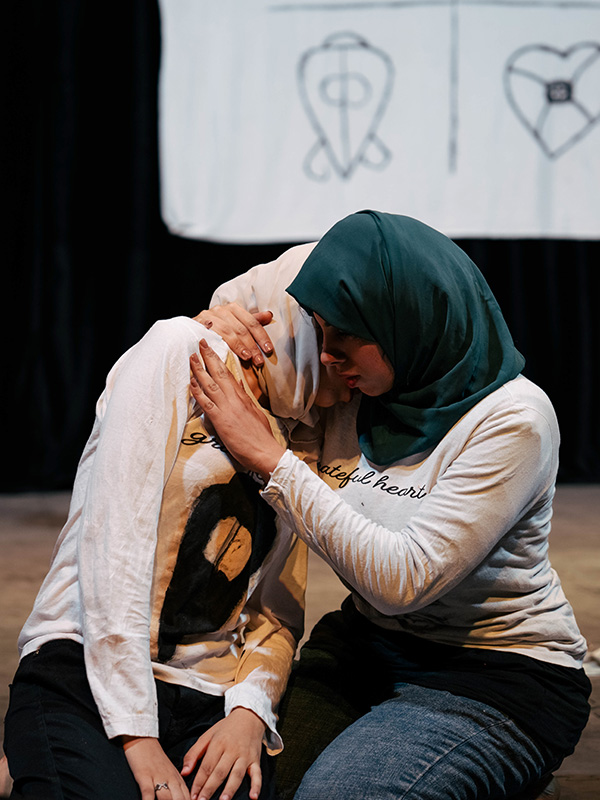
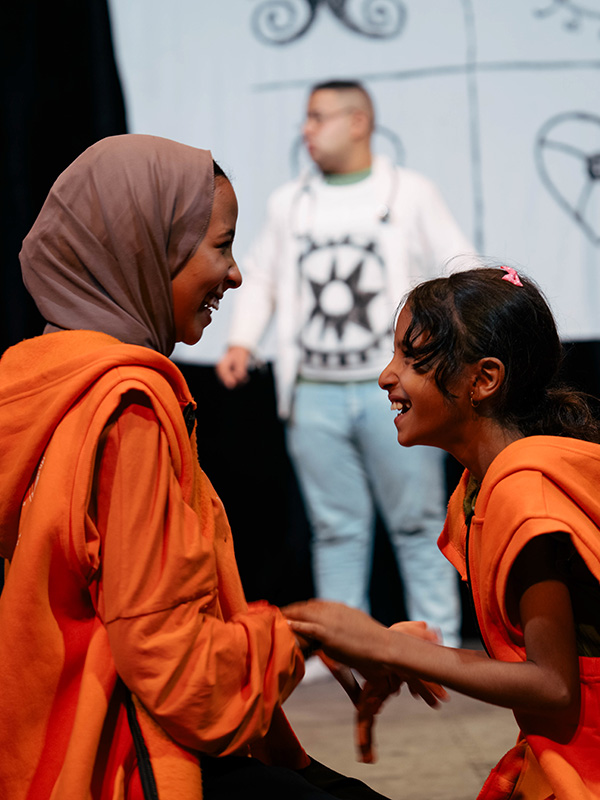
Prioritizing careers in Syria
At a women's centre in Douma, Syria, the key word is “choice.”
The Syrian Family Planning Association, a UNFPA partner, seeks to significantly reduce early marriage and improve opportunities for girls. The female-led association knows there’s no quick fix to deep-rooted inequities, so it takes a multifaceted approach, running workshops about the risks of child marriage and ways to avoid it, as well as providing training to help women and girls choose possible careers and increase their independence.
The courses, which are for women and girls of all ages, range from literacy skills to the basic principles of nursing. There are also options for those who might want to be self-employed, such as sewing and candle-making. The training thus reaches both an older generation that may have missed out on opportunities and a younger one – future-proofing against gender inequality.
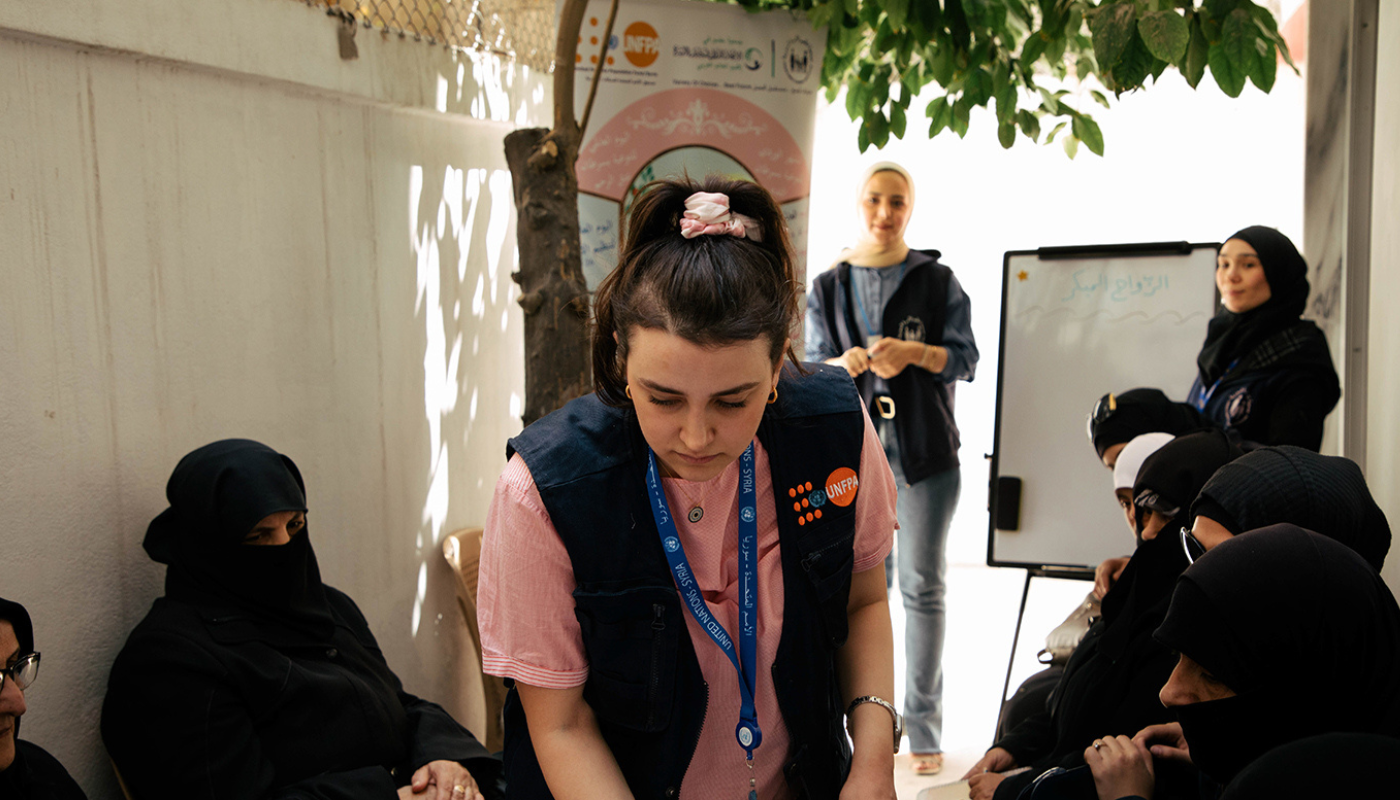
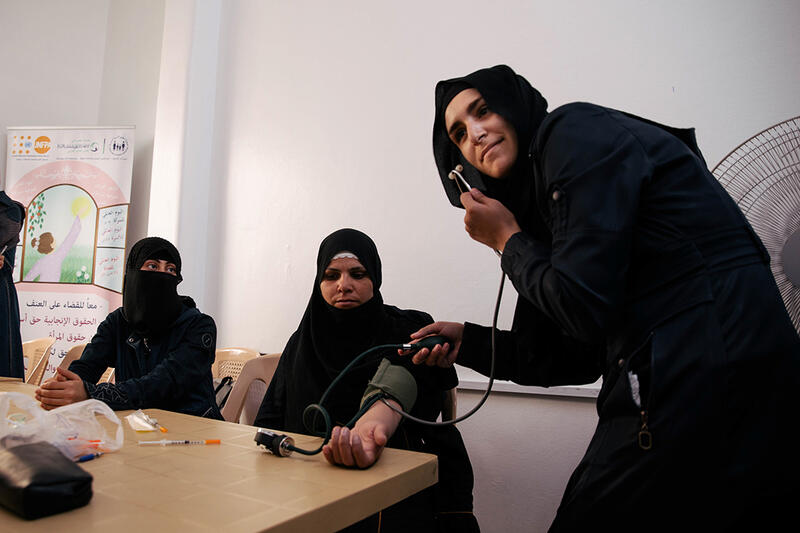
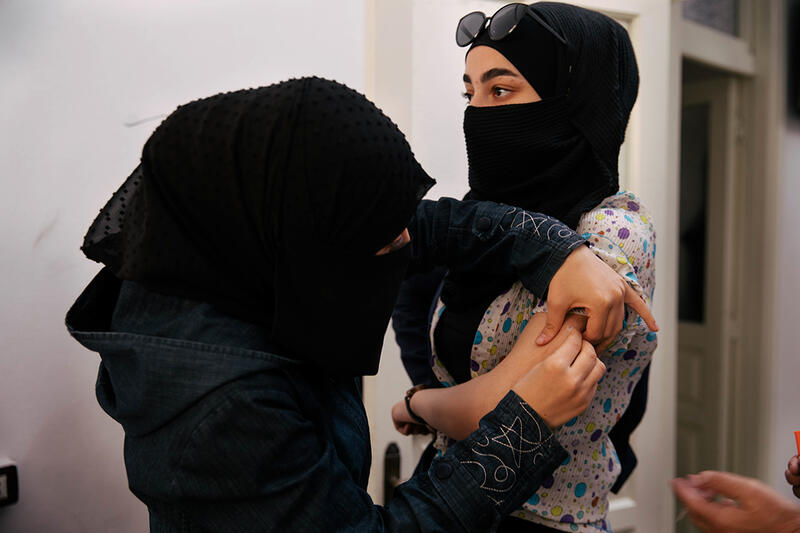
Spreading the power of education in Tunisia
In order for young people to protect and advocate for their health, well-being and dignity, they first must know their rights.
That’s why comprehensive sexuality education – a process of teaching the cognitive, emotional, physical and social aspects of sexuality – is so vital.
Rabaa, a comprehensive sexuality educator in Tunisia who received training from UNFPA, is helping to lead the way.
“Every person must know that their body belongs to them and them alone, and that no one else has the right to interfere,” she says.
Indeed, we need to remove taboos and ensure that all young people in Arab communities, and around the world, have access to accurate, objective information.
You can hear more from Rabaa herself about her vital work in this video.
